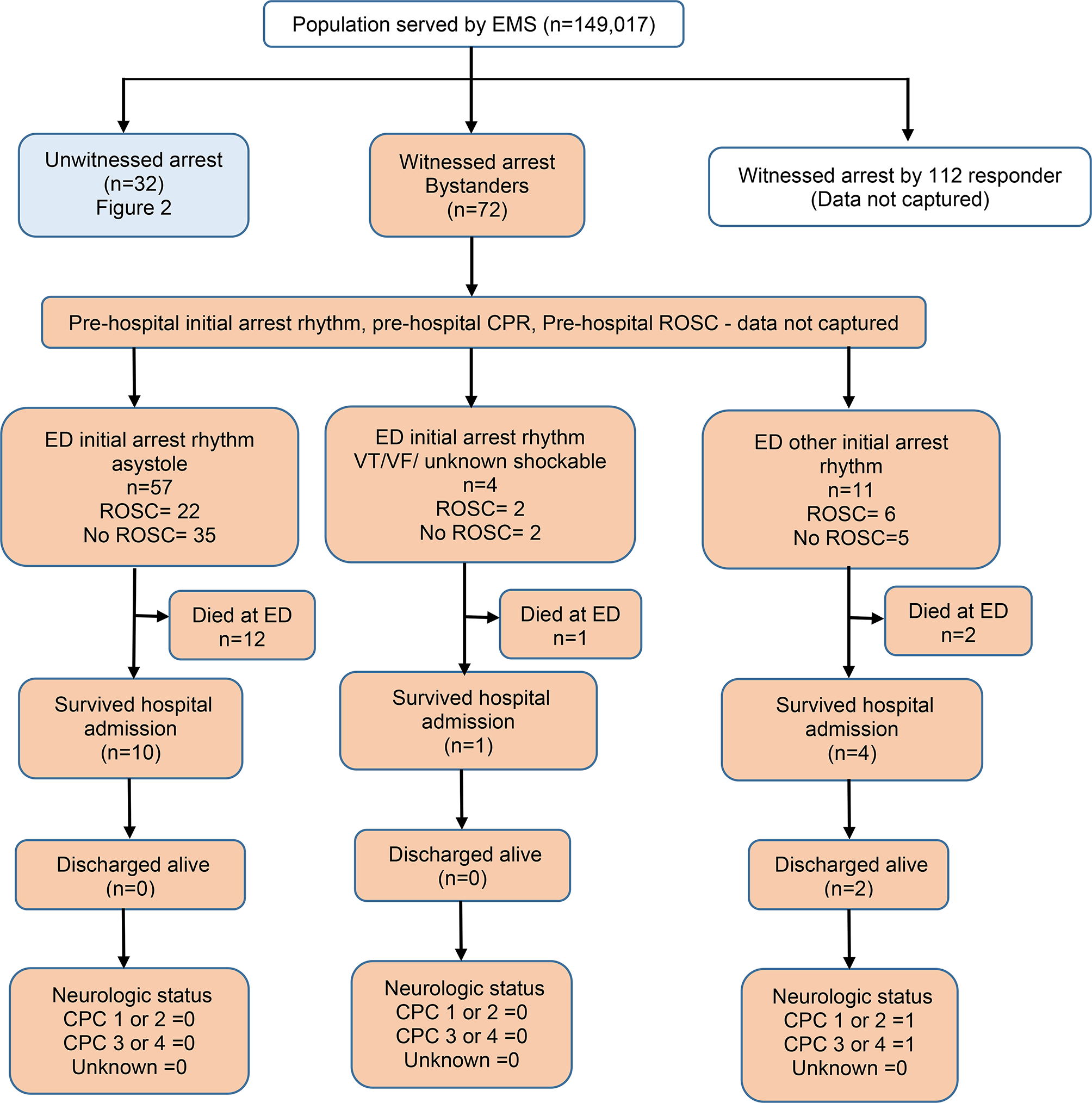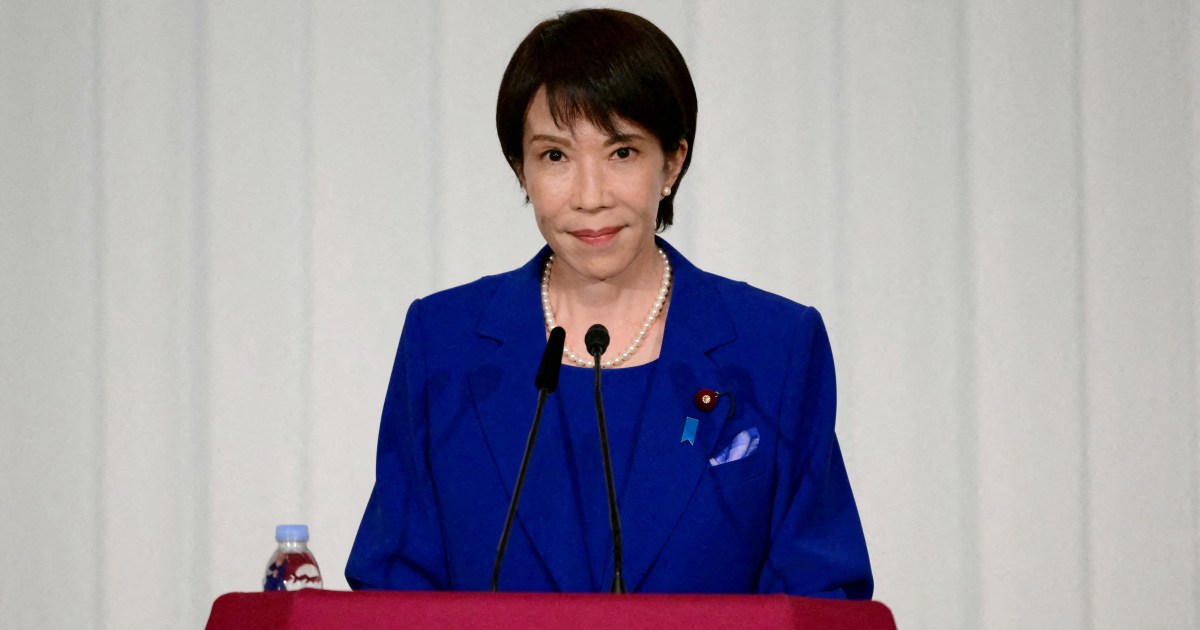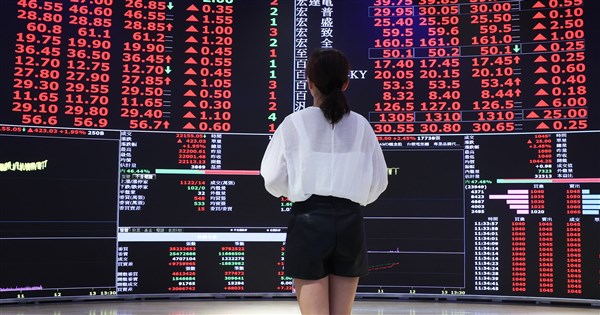The OnePlus 15 is set to be announced in China on October 27. Ahead of the launch, OnePlus has been teasing the phone’s design and key features. The company recently confirmed the phone’s display specs, and has now revealed its battery…
Blog
-

Resuscitation outcomes and associated factors among out-of-hospital cardiac arrest patients at the National Referral Hospital, Bhutan: a prospective cohort study | International Journal of Emergency Medicine
Study design
This was a prospective cohort study conducted from August 1, 2023 to July 31, 2024. Enrolled patients were followed for up to 90 days after hospital discharge or until the end of the study period.
Study setting and population
This study…
Continue Reading
-
Study Finds Rising Antibiotic Resistance in Neonatal Urinary Tract Infections – geneonline.com
- Study Finds Rising Antibiotic Resistance in Neonatal Urinary Tract Infections geneonline.com
- The rising threat of antibiotic and multidrug resistance in neonatal urinary tract infections BMC Pediatrics
- Deadly superbugs on the rise in newborn…
Continue Reading
-

Coalition deal set to make Takaichi Japan’s first female PM | Politics News
Right-wing Japan Innovation Party says it will support the governing LDP, allowing Sanae Takaichi to be voted in as leader.
Published On 20 Oct 2025
Hardline conservative Sanae Takaichi…
Continue Reading
-

Taiwan shares end sharply higher as tech sector stages rebound
Taipei, Oct. 20 (CNA) Shares in Taiwan moved sharply higher by almost 400 points Monday to smash closing records after the bellwether electronics sector staged a rebound from Friday’s slump amid lingering optimism toward artificial intelligence development, dealers said.
After falling 1.25 percent Friday, the Taiex, the weighted index on the Taiwan Stock Exchange (TWSE), ended up 386.26 points, or 1.41 percent, at 27,688.63 Monday after fluctuating between 27,412.45 and 27,768.27. Turnover totaled NT$485.86 billion (US$15.87 billion).
“Friday’s losses largely came as investors pocketed their recent strong gains by trimming holdings in TSMC (Taiwan Semiconductor Manufacturing Co.), although the contract chipmaker raised its sales outlook for 2025,” equity market analyst Andy Hsu said.
“Buying remerged today as optimism toward AI applications continued to prompt investors to pick up bargains,” Hsu said.
Following a 2.15 percent decline Friday, TSMC, the most heavily weighted stock in the local market, rose 2.07 percent to close at NT$1,480.00 Monday, contributing about 240 points to the Taiex’s rise and sending the electronics index higher by 1.91 percent.
TSMC’s buying spread to other semiconductor stocks, with its application specific integrated circuit (ASIC) design unit Global Unichip Corp. rising 2.01 percent to end at NT$1,525.00.
In addition, due to rising memory chip prices, Winbond Electronics Inc. gained 5.46 percent to close at NT$46.35 and rival Nanya Technology Corp. added 2.88 percent to end at NT$107.00.
“AI server maker Hon Hai Precision Industry Co., second to TSMC in terms of market value, also extended momentum from Friday, lending additional support to the Taiex,” Hsu said.
With its target price raised to NT$400 by foreign brokerages citing strong AI server sales, Hon Hai shares rose 5.30 percent to close at NT$238.50.
Buying also rotated to major electronic component suppliers, with Yageo Corp., the world’s third-largest multi-layer ceramic capacitor (MLCC) maker, gaining 6.23 percent to end at NT$196.00.
Hsu said while these large-cap tech stocks attracted market attention, old economy stocks largely lagged behind the broader market.
Among them, China Steel Corp., the largest steel maker in Taiwan, fell 0.79 percent to close at NT$18.90, and Tung Ho Steel Corp. shed 2.51 percent to end at NT$62.10.
Formosa Chemicals & Fibre Corp. lost 0.50 percent to close at NT$29.80, and Formosa Plastics Corp. ended down 0.13 percent at NT$38.85.
In the financial sector, which lost 0.09 percent, Fubon Financial Holding Co. lost 0.45 percent to close at NT$89.10, while Cathay Financial Holding Co. ended up 0.15 percent at NT$65.30.
“Judging the market movement, I think the Taiex’s uptrend is expected to continue, led by AI hopes, although investors need to watch possible technical pullbacks,” Hsu said. “Ample liquidity from a rate cut cycle by the U.S. Federal Reserve is expected to continue to help the index to move higher.”
According to the TWSE, foreign institutional investors bought/sold a net NT$14.22 billion worth of shares on the main board on Monday.
Continue Reading
-
Notices issued to Adiala jail superintendent, others on KP CM’s plea seeking meeting with Imran – Dawn
- Notices issued to Adiala jail superintendent, others on KP CM’s plea seeking meeting with Imran Dawn
- No one will be allowed to impose decisions made behind closed doors: K-P CM The Express Tribune
- If not allowed to meet Imran, will consult…
Continue Reading
-

University of Oxford Spin-out QFX Announces Seed Funding Round, Appoints Industry Leaders to Executive Team
Insider Brief
- QFX, a UK-based quantum hardware supplier, has launched with a mission to deliver scalable networked quantum technologies for computing, sensing, and secure communications.
- Founded by Dr. Joe Goodwin and researchers from the University of Oxford, the company builds on advances in trapped-ion and neutral-atom architectures, emphasizing modular design for large-scale quantum systems.
- The company raised £2 million in seed funding led by investor Paul Graham and appointed Dr. Timothy Ballance as CEO and Sadie Mansell as COO, both formerly of Infleqtion, to lead its commercial and operational expansion.
PRESS RELEASE — QFX, a UK-based supplier of advanced quantum hardware, announces its mission to deliver networked quantum technologies at the scale required for significant quantum advantage. Applying a modular philosophy to precision quantum engineering, QFX will provide the building blocks to revolutionise trapped ion and neutral atom quantum technologies.
Incorporated as Quantum Fabrix Ltd, trading as QFX, the company builds on world-leading trapped ion quantum computing research at the University of Oxford, including development of the world’s foremost networked quantum computing demonstrator. The company was founded by Associate Professor and ERC Laureate Dr Joe Goodwin and researchers from his group, which is developing the first scalable networked quantum computing architectures, combining individual trapped ions with optical microcavities.
The company recently closed a £2 million seed funding round, led by renowned Silicon Valley investor and Y-Combinator co-founder, Paul Graham. The funding will support QFX’s mission to deliver scalable quantum technologies for computing, sensing, and secure communications-addressing the growing demand for robust quantum infrastructure across industry and academia.
QFX has recently welcomed two seasoned industry leaders to its executive team:
Dr Timothy Ballance, appointed Chief Executive Officer, joins from Infleqtion, where he served as President – UK having led the firm’s UK subsidiary since its inception, building on his academic background in networked trapped ion quantum computing research in Cambridge and Oxford. Timothy has since played a central role in commercialising quantum technologies for national defence, navigation, and computing. Under his leadership, Infleqtion UK grew from a single-person operation to a 50-strong team and delivered pioneering products such as the cold atom sources and the atomic clocks.
Sadie Mansell, appointed Chief Operating Officer at QFX, also joins from Infleqtion, where she served as Director of Operations. Sadie brings extensive experience in scaling quantum ventures, operational strategy, and delivering complex R&D programmes. Her leadership has been instrumental in building high-performing teams and driving operational excellence in fast-growth quantum environments.
Several company Founders will continue to play pivotal roles in the growth of the company:
- Dr Joe Goodwin will direct technical strategy at QFX as Chief Technology Officer, continuing his research into scalable networked quantum computing architectures [1] [2].
- Dr Laurent Stephenson will lead research and development as Chief Scientific Officer, building on his decade of experience at the forefront of trapped ion quantum computing which has resulted in the world’s highest performance networked quantum computing system [3] [4].
- Dr Peter Drmota will lead innovation as Chief Innovation Officer, having established himself as an award-winning innovator with his high-impact work on photonically-networked distributed quantum computers [5][6].
“With strong investor backing and a leadership team rooted in deep technical and commercial expertise,” said Dr Ballance, “I am thrilled to be leading QFX delivering quantum hardware which will enable the next generation of quantum systems.”
Continue Reading
-

Get ready to reserve your WhatsApp username
At BetaNews.com, we don’t just report the news: We live it. Our team of tech-savvy
writers is dedicated to bringing you breaking news, in-depth analysis, and trustworthy reviews across
the digital landscape.…Continue Reading
-

Nigeria losing ground to African rivals in VC funding race
Nigeria, previously the centre of venture capital funding in Africa, is falling behind the continent’s other major markets when it comes to attracting investment, in a trend that one analyst says “reflects structural and long-term challenges in Nigeria’s venture capital ecosystem.”
In 2021, Africa’s record year for venture capital with 681 fundraising rounds totalling $5.2bn, Nigeria ranked first for both deal volume and the overall amount of cash raised. That year, Nigerian startups secured around $1.8bn in funding, over a third of the continent’s total and more than the continent’s three other major markets – Kenya, South Africa, and Egypt – combined.
However, this status appears to be slipping. As of August 2025, more than 500 African startups had raised about $2.8bn. However, Nigeria accounted for just $186m of that. By contrast, Kenya has managed $879m, South Africa has secured $848m, while Egyptian companies have collectively raised $561m. For the first time in several years, Nigeria is firmly last among the so-called “big four” African markets.
Too reliant on foreign investment
What explains this sharp downturn in fortune? Speaking to African Business in Lagos, Noah Banjo, a tech and venture capital analyst, says a reliance on foreign investors is limiting Nigerian startups’ ability to raise funds.
“The primary reason Nigeria is falling behind other major markets in venture capital funding is that Nigerian firms participate in but rarely lead big funding rounds, which leaves startups dependent on foreign investors for significant growth-stage funding,” Banjo says.
This reliance on foreign venture capital funds is especially problematic because Nigeria has experienced several major macroeconomic challenges in recent years, which has deterred foreign investors from assuming too much exposure to the Nigerian market.
In particular, since President Bola Tinubu committed to liberalising foreign exchange markets and freely floated the Nigerian naira (NGN) is June 2023, the currency has depreciated by almost 70% against the US dollar.
For the majority of startups earning their revenue in the local currency, this makes it extremely difficult for them to offer dollar returns to international investors. This means that even some of the country’s fastest growing companies with increasingly large naira-denominated revenue can still struggle in dollar terms.
For example, Pawel Swiatek, chief operating officer at Nigerian fintech unicorn Moniepoint, told African Business in April that the massive depreciation of the naira had significantly dented its US dollar profits.
“While the naira has now thankfully stabilised, one of the challenges we always contend with is exchange rate risk,” he said. He added that Moniepoint was seeking to expand outside of the West African country partly “to diversify and have macroeconomic and forex exposure to other countries and not just Nigeria.”
In addition to currency depreciation, associated issues such as stubbornly high inflation – prices are still rising at year-on-year rate of over 20% – further complicate the business landscape and make the market more challenging for foreign investors.
Protfit repatriation fears
The Private Equity and Venture Capital Association of Nigeria (PEVCA) has also pointed out that foreign investors are often apprehensive about committing to the Nigerian market over concerns they will struggle to repatriate their profits as a result of capital controls.
These concerns have been reinforced by high-profile disputes, such as that between Nigeria and the United Arab Emirates over the inability of Emirates and Etihad Airlines to repatriate funds. While the row was ultimately resolved, the dispute saw Emirates suspend all flights to and from Nigeria for around a year from August 2022, citing slow progress on its efforts to repatriate around $85m of profits.
Banjo notes that Nigeria’s drop in venture capital funding is partly driven by these “economic challenges such as inflation, currency devaluation, and high borrowing costs” and adds that “this reflects structural and longer-term challenges in Nigeria’s venture capital ecosystem, influenced by macroeconomic factors.”
Rotimi Ogunyemi, a Lagos-based technology attorney and partner at BOC Legal, similarly notes that “persistent currency volatility, high inflation, and still-unstable economic policies make it difficult for investors, especially international ones, to price risk with confidence.”
Regulatory issues persist
Ogunyemi also points out that Nigeria’s regulatory landscape can prove challenging for foreign venture capital funds to navigate. He says that “over the past few years, sudden policy shifts in foreign exchange management, taxes, and regulations have created real uncertainty – and investors have responded by becoming more cautious.”
“The narrative that Nigeria is “risky” has grown partly because, historically, the rules have kept changing mid-game. Other African markets have their own challenges, but they have been better at providing clear forward guidance and sticking to it,” he adds.
“Kenya, for example, communicates regulatory changes more systematically, giving startups and investors time to adjust,” Ogunyemi tells African Business. “Nigeria can do the same, without losing its dynamism, by introducing more transparent consultation periods, clearer roadmaps, and predictable regulatory timelines.”
No way out?
Another issue which analysts say is hampering Nigeria’s venture capital ecosystem is the lack of exit options for investors. To varying degrees, this is a problem across the continent.
Sadaharu Saiki, general partner at Sunny Side Ventures in Cairo, has previously told African Business that a lack of IPO activity and limited numbers of mergers and acquisitions or secondary transactions makes it difficult for investors to exit their positions and cash in their profits.
“It is clear we need more liquidity options to boost the attractiveness of African markets for investors,” he said.
However, Ogunyemi believes that this issue is particularly acute in Nigeria, arguing that the country “has not yet built the kind of domestic capital pools and exit channels, such as local IPOs or secondary markets, that give later-stage investors the confidence they will get returns.”
“South Africa’s more developed capital markets, for example, give investors confidence about eventual exits,” he says. “Nigeria can replicate some of this by creating, for instance, a dedicated tech growth board on the Nigerian Exchange, with lighter listing requirements and incentives for research coverage and market making.”
Time to encourage local investment
What could be done to reverse these trends? Beyond stabilising the macroeconomic environment – bringing the naira to a more stable level and getting inflation under control – both Banjo and Ogunyemi believe that reducing Nigeria’s reliance on foreign investors is essential.
Banjo says that “increasing the capital and leadership role of Nigerian venture capitalists in funding rounds is crucial to reducing reliance on foreign investors.”
Ogunyemi adds that this could be achieved by encouraging “local growth funds backed by pension, insurance, and diaspora capital, so startups are not wholly dependent on foreign venture capital cycles.”
Yet despite the challenges, there are reasons to be optimistic about the future of startup funding in Nigeria.
For one, the government has claimed that Nigeria is past the worst of its economic instability having taken its “bitter medicine.” In a recent speech in Abuja, Tinubu said that “the economy is stabilised […] the bleeding has stopped, haemorrhage is gone; the patient is alive.” The naira has recovered about 15% of its value since the 2023 devaluation, perhaps suggesting that more stable macro conditions could be ahead.
Banjo also notes that the Nigerian venture capital space is changing in response to the challenges it has faced.
“Emerging funding forms like venture debt and increased involvement from development finance institutions indicate potential for recovery and evolution in the ecosystem,” he says.
“Despite a decline in deal value, Nigeria still leads Africa in venture capital deal volume, suggesting there is plenty of room for sustainable growth ahead.”
Continue Reading
-
Pakistan, Afghanistan to make efforts to curb terrorism: Kh Asif – RADIO PAKISTAN
- Pakistan, Afghanistan to make efforts to curb terrorism: Kh Asif RADIO PAKISTAN
- What we know about Pakistan-Afghanistan ceasefire, will it hold? Al Jazeera
- ‘Positive step’: Saudi Arabia welcomes Pakistan-Afghanistan ceasefire, affirms support…
Continue Reading
